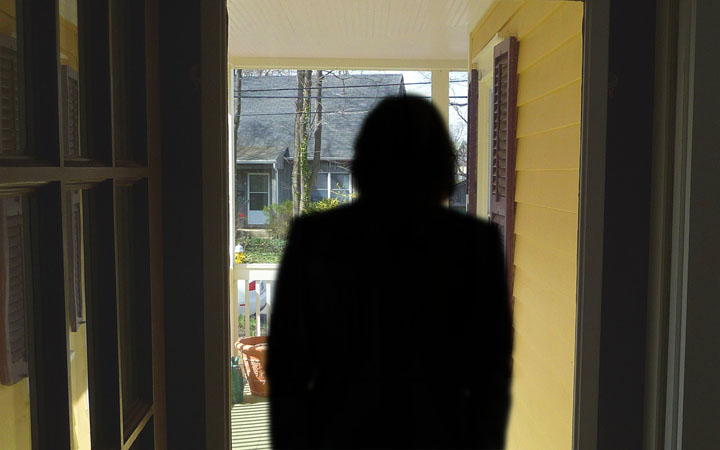
Who are the solicitors who come to your door? Are they dangerous or are they in danger? Here’s what you should know.
By Sophie Pappas
On a rainy afternoon in April, a white van pulled up at the end of a Zionsville neighborhood cul-de-sac. Out jumped two people: one a male, dressed in a suit, the other a female, wearing a torn t-shirt and jeans.
Walking with clipboards in hand they started to linger down the block, as the van pulled away and sped off down the neighborhood lane.
These people are in sales. And sometimes, they are for sale.
Who are they?
According to the National Human Trafficking Resource Center, there are more than 600,000 people trafficked throughout the U.S. every year. Some of these people are involved in the sex trade, while others are caught in the labor trade.
It is estimated that more than 20 percent of those trafficked are children, who are either runaways from their homes domestically, or illegal immigrants forced into trafficking once they are brought to the U.S.
Daris Reno Blickman, a board member with Building Empowerment by Stopping Trafficking, Inc., and a former Carmel resident, said that the solicitors seen on suburban streets every spring are part of the labor trafficking problem in America.
“There’s not a certain type of person trafficked in America,” Blickman said. “They could really be anybody. But of course we see high numbers of Native Americans and African Americans trafficked when they come from an impoverished background.”
Going from door to door, these solicitors sell magazines or boxes of candy. Sometimes they even try to sell utility packages or light bulbs.
“A lot of times they are controlled by pimps and the traffickers,” Blickman said. “They are controlled because they are threatened, or their families are threatened. In almost every case there is physical or sexual abuse.”
Forced to sell goods and make money for the traffickers, Blickman said that almost any young person could fall into the trap of being trafficked.
“(The pimp) may start off nice in the beginning to build trust,” she said. “But then the person is stuck in isolation with almost no contact with their families. Then they are under control and will work out of intimidation.”
What you can do
According to Blickman, someone being trafficked in a town like Zionsville would likely never have the chance to tell anyone what is happening to them. They always walk in pairs and are followed by someone who controls them.
“Sometimes they are lucky if they get to go to the bathroom by themselves,” she said. “It comes down to mind control. When they are at your door they are not likely to open up to you.”
Blickman said that if a homeowner feels safe enough to open their door and engage in verbal communication with a solicitor, then there are ways to detect if someone is being trafficked.
“But really there is a reason that for years this was called the invisible crime,” she said. “Because people overlook this. They don’t want to see the human trafficking around them.”
Signs someone is being trafficked
Source: National Human Trafficking Resource Center and BEST, Inc.
- They are constantly moving
- They have frequent or constant bruising
- They look down at the floor often
- Somebody is always standing next to them
- They express fear of going home after the work day
Trafficking masked as solicitation
According to Zionsville Police Dept. Chief of Police, Robert Knox, the town does have an ordinance that addresses solicitors, but it is hard to know who is being trafficked and who is not, or who is legally able to solicit.
The ordinance states that all solicitors in Zionsville must apply for a solicitation permit; however, many do not.
“All of our residents should use caution when opening their doors to anyone they do not know and trust,” said Knox. “Common sense must always rule the day whether you are in your home or out in public when it comes to interaction with anyone, especially strangers.”
Knox said that if any homeowner does not want to talk to the solicitor, they absolutely do not have to.
“They can ignore the person at the door or tell them they are not interested and for the solicitor to move on,” Knox said. “And they absolutely should contact the police if they feel unsafe with the solicitor or anytime they feel that the solicitor is abusing their permission to solicit.”



